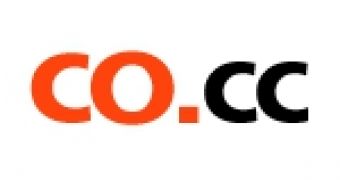Someone identifying themselves as James Kim, the general manager of CO.CC, has posted a message on Google's webmaster help forum challenging the search giant to block Blogger and Facebook pages from search results since it chose to do the same with the all .co.cc websites.
Kim claims he resorted to posting on the forum after he was unable to reach Google's general manager directly and needed to forward the message.
In his post, he claims the decision to deindex the entire .co.cc second-level domain (SLD) is disproportionate as there are over 10 million registered domains and only 0.01% are malicious.
There might be some truth to Kim's claim, as antivirus vendor Trend Micro only identified 35,000 malicious .co.cc URLs last month. This is 35 times more than 0.01%, but still only a small fraction of the total number of domains.
Kim adds that his company, Korea-based CO.CC, has been working on the abuse problem with major antivirus vendors like Trend Micro and Symantec since last year and is also checking the IPs of newly set up domains against Spamhaus's block list.
"In addition, once we get malicious domains information from major vaccine [antivirus] companies every day, we are promptly doing Shinkhole," he adds.
The CO.CC general manager argues that 70% to 80% of *.blogspot.com and facebook.com/* pages are low quality sites that have been abandoned and should also be deindexed.
He adds that there are thousands of Google Apps, Google Sites and Blogger users who are using .co.cc for their custom domains and they haven't been warned in advance that they will have disadvantages if the choose this second-level domain.
"We always supply our all domains information and zone files to vaccine company if request. Whenever they request to us, we are always to prepare for it. We will accept any difficult request from you and we even take serious positive consideration if we need to sell co.cc," Kim promises.
Security researchers from Trend Micro have already expressed their opinion that deindexing SLDs is inefficient, especially in this case where malicious .co.cc websites are mostly used for second level redirects or landing pages and are not indexed in the first place.

 14 DAY TRIAL //
14 DAY TRIAL //